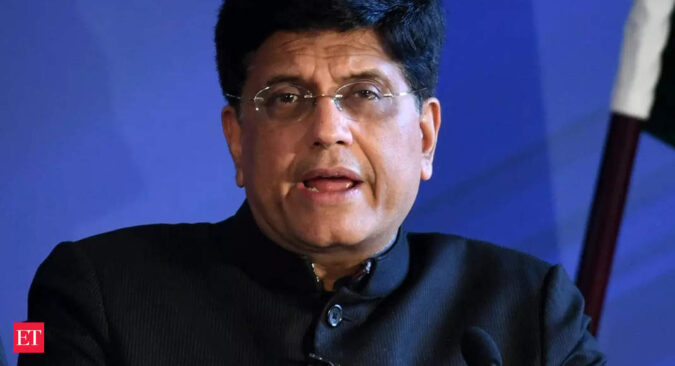“Last year, we grew to $676 billion, a massive jump and an all-time record for India, and we are inching close and marching ahead to cross $750 billion of goods and services exports in 2022-23,” Goyal said, at the Confederation of Indian Industry (CII) Partnership Summit 2023. In 2021, India’s goods and services exports were $500 billion.
Goyal also said that India is offering its digital prowess in the form of digital public goods for use by the rest of the world.
“Singapore and India have recently partnered on UPI and we hope to do the same with the UAE in the near future”, he said. UPI is Unified Payments Interface.
“We are expanding rupee trade with several countries, many of which are at an advanced stage of dialogue and finalisation,” Goyal said.
On the issue of building resilient and global value chains, the minister said that the world must collectively address the challenges of tariff and non-tariff barriers.
“There are so many non-tariff barriers and as countries create them, others are tempted to follow suit. It is imperative that nations must address these in a mission mode,” he said.Goyal also pushed for a strong and responsive international institutional framework on the issue of financing global recovery.
“A strong and responsive international institutional framework is called for within which we must reform several multilateral organisations and trading arrangements that have, over the years, led some non-transparent economies whose economic systems are totally opaque- to enjoy the fruits of multilateral engagements,” he said.
As per Goyal, “it is time the world called out such countries and made them accountable and transparent”.
On emerging technologies, he suggested world skill mapping to find certain nations with skills to be matched with the rich countries which need those skills.
“Singapore and India are making serious efforts to do that matchmaking. UAE and India have been doing that…With Australia, we are working on such mobility and migration partnerships,” he said.
Mary Ng, Minister of International Trade, Export Promotion, Small Business and Economic Development, Canada said: “Last year, our trade was nearly $21 billion and we will do better. Canada’s portfolio investment in India has reached $70 billion.”
She said that Canada’s indo-pacific strategy is “most ambitious and consequential” and said the two sides are working on a trade agreement that is meaningful and that would make trade seamless and help develop supply chain links, create partnerships in the digital economy in clean tech, agri tech, health tech, and creating solutions for the future in climate change and food security.
“The recent pandemic and geopolitics has caused pain and panic in many ways to developing and small economies like ours. A country like mine looks forward to getting support and understanding towards diversification of import and export markets, raw materials, financing and domestic productive capacities,” said Lyonpo Loknath Sharma, Minister of Energy & Natural Resources, Industry, Commerce and Employment, Royal Government of Bhutan.
Sharma also said that ICT allows LDCs with limited products and capacities to be drivers of suppliers in the global economy and not mere consumers.
“Landlocked countries must use ICT and avoid being digitally locked. We were geographically locked, let’s not be digitally locked,” he said.
